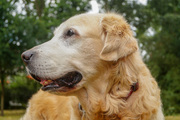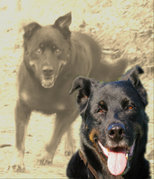Engelse Bulldogs zijn een genetisch doodlopend einde, artikel. 

Ik kreeg deze op mijn Facebook, best een interessant artikel.
In het kort, alle Engelse Bulldogs zijn dusdanig verwant aan elkaar dat je het ras niet gezonder kan maken door binnen de huidige poel te kruisen.
http://www.sciencealert.com/english-bulldogs-are-at-a-genetic-tipping-point-study-finds
Researchers have found evidence to suggest that English bulldogs – a breed known for short snouts and tiny, wrinkled bodies – are so genetically similar to one another, it’s impossible for breeders to make them healthier.
This 'genetic dead end' means that breeders will likely have to breed bulldogs - the fourth most popular breed in America - with different breeds if they want future generations to continue without major health issues.
"The English bulldog has reached the point where popularity can no longer excuse the health problems that the average bulldog endures in its often brief lifetime," team leader Niels Pedersen from the University of California, Davis School of Veterinary Medicine, said in a statement.
"More people seemed to be enamoured with its appearance than concerned about its health. Improving health through genetic manipulations presumes that enough diversity still exists to improve the breed from within, and if not, to add diversity by outcrossing to other breeds," he said. "We found that little genetic 'wiggle room' still exists in the breed to make additional genetic changes."
The team examined 102 English bulldogs - 87 from the US and 15 from elsewhere around the world - and made genetic comparisons to a set of 37 other English bulldogs that were brought to the UC Davis School of Veterinary Medicine because of health issues.
They found that the bulldogs lacked that genetic diversity needed for breeders to selectively breed individuals with healthier phenotypes, which means there's little hope for breeders to create a healthier bulldog unless they crossbreed them.
"These changes have occurred over hundreds of years but have become particularly rapid over the last few decades," says Pedersen. "Breeders are managing the little diversity that still exists in the best possible manner, but there are still many individuals sired from highly inbred parents.
"Unfortunately, eliminating all the mutations may not solve the problem as this would further reduce genetic diversity," he adds. "We would also question whether further modifications, such as rapidly introducing new rare coat colours, making the body smaller and more compact and adding more wrinkles in the coat, could improve the bulldog's already fragile genetic diversity."
This is a big deal for breeders (and anyone who loves the adorably ugly faces of bulldogs), because it means the English bulldog could be on its way out. Mixing it with another breed to ensure the health of future generations might change them so much, they no longer fit the breed specifications for an English bulldog.
While the team’s findings aren't exactly positive, researchers and breeders have been saying that English bulldogs are overbred for years. In fact, the breed cannot even give birth without human intervention because of its odd size, Benoit Denizet-Lewis reports for The New York Times.
"There is little doubt that the anatomy of the English bulldog has considerable capacity to cause suffering," researchers at the UK’s Royal Society for the Prevention of Cruelty to Animals concluded in 2011. "The breed is noted to have locomotion difficulties, breathing problems, an inability to mate or give birth without assistance... Many would question whether the breed’s quality of life is so compromised that its breeding should be banned."
The breed originated way back in 1835, with an initial population of only 68 dogs. From there, breeders have amplified the most sought-after traits, and have even reduced their population size on a few occasions, leading to the unhealthy, possibly genetically doomed population we have today.
Hopefully, as more researchers weigh in on the issue, there will be a way to make the popular breed healthier. But if the results of the new study are borne out, a new, hybrid form of English bulldog might be on the horizon.
The team’s findings were published in the journal Canine Genetics and Epidemiology.
 Dobry
Dobry

 3 doggies
3 doggies

ongelooflijk he, al eeuwen lang bestaat het ras, en "wij" moderne fokkers krijgen het voor elkaar om in korte tijd een ongezond ras te creeen. ![]()
Dit topic gaat over het hondenras Engelse Bulldog

- Zoeken op de HondenPage
-
Zoek je iets op de HondenPage ? Vul dan hier jouw zoekwoorden in ?













